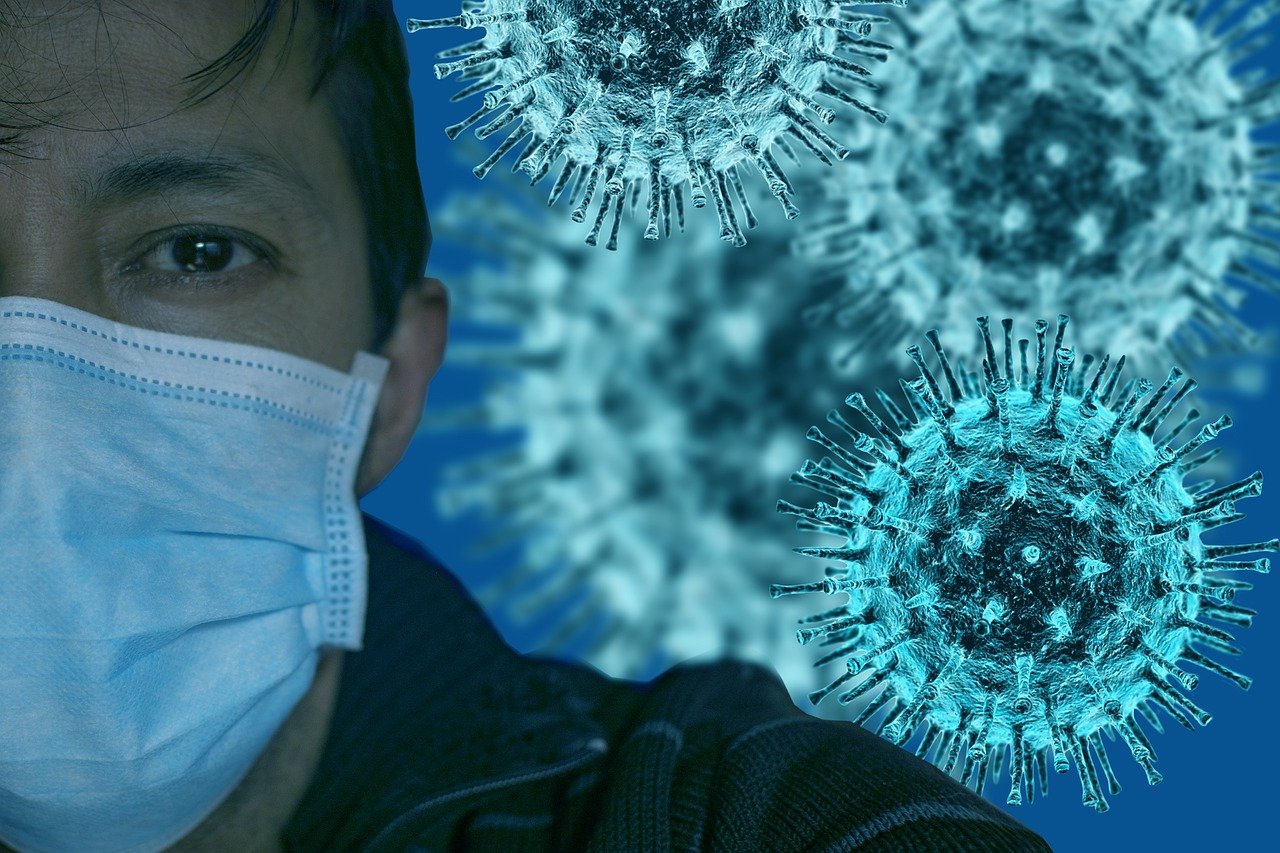[ad_1]
Summary: ApoE4, a gene associated with an increased risk of Alzheimer’s disease, also appears to increase susceptibility and the severity of COVID-19. SARS-CoV-2, the virus responsible for coronavirus, increased susceptibility to COVID-19 in ApoE4 neurons and astrocytes in brain organoid models.
Source: City of Hope
A City of Hope-led research team found that the same gene that increases the risk for Alzheimer’s disease, ApoE4, can increase the susceptibility to and severity of COVID-19.
“Our study provides a causal link between the Alzheimer’s disease risk factor ApoE4 and COVID-19 and explains why some (e.g., ApoE4 carriers) but not all COVID-19 patients exhibit neurological manifestations” said Yanhong Shi, Ph.D., director of the Division of Stem Cell Biology at City of Hope and co-corresponding author of the new study. “Understanding how risk factors for neurodegenerative diseases impact COVID-19 susceptibility and severity will help us to better cope with COVID-19 and its potential long-term effects in different patient populations.”
At the beginning of the study, the team was interested in SARS-CoV-2’s effects on the brain. Due to the fact that COVID-19 patients often lose their sense of taste and smell, the team theorized that the virus had an underlying neurological effect.
The team first created brain cells in the lab using pluripotent stem cells (iPSCs), which are a kind of stem cell that can become virtually any type of cell. The newly created neurons and astrocytes, a type of helper cell, were then infected with SARS-CoV-2. They found that both cell types were susceptible to infection.
Next, the team used iPSCs to create brain organoids, which are 3D tissue models that mimic certain features of the human brain. They created one organiod model that contained astrocytes and one without them. They infected both brain organoid types with the virus, and discovered that those with astrocytes boosted SARS-CoV-2 infection.
The team went on to further study the effects of ApoE4 on susceptibility to SARS-CoV-2. They did this by generating neurons from iPSCs “reprogrammed” from the cells of an Alzheimer’s patient that contained ApoE4. Using gene editing, the team modified some of the iPSCs-created ApoE4 cells so that they contained ApoE3, which is a gene type that is considered neutral. The ApoE3 and ApoE4 iPSCs were then used to generate neurons and astrocytes.
The results were published recently in the journal Cell Stem Cell. The ApoE4 neurons and astrocytes both showed a higher susceptibility to SARS-CoV-2 infection in comparison to the neutral ApoE3 neurons and astrocytes. Moreover, while the virus caused damage to both ApoE3 and ApoE4 neurons, it appeared to have a slightly more severe effect on ApoE4 neurons and a much more severe effect on ApoE4 astrocytes compared to ApoE3 neurons and astrocytes.

In the last part of the study, the researchers tested to see if the antiviral drug remdesivir inhibits virus infection in neurons and astrocytes. They discovered that the drug was able to successfully reduce the viral level in astrocytes and prevent cell death. It was also able to rescue neurons from neurodegeneration.
The team’s next step is to continue studying the effects of the virus to better understand the role of ApoE4 in the neurological manifestations of COVID-19. Many people infected with COVID-19 have recovered, but long-term neurological effects such as severe headaches are still seen months after.
“COVID-19 is a complex disease, and we are beginning to understand the risk factors involved in the manifestation of the severe form of the disease” said Vaithilingaraja Arumugaswami, Ph.D., a member of the UCLA Broad Stem Cell Research Center and co-corresponding author. “Our cell-based study provides a possible explanation as to why individuals with Alzheimer’s’ disease are at increased risk of developing more severe COVID-19 symptoms.”
Funding: The research was supported by the Louise and Herbert Horvitz Charitable Foundation, the Sidell Kagan Foundation, California Institute for Regenerative Medicine (TRAN1-08525, DISC2 12172), the National Institute of Aging of the National Institutes of Health (R01 AG056305, RF1 AG061794, R56 AG061171), and the National Institute of Allergy and Infectious Diseases of the National Institutes of Health (R21AI129471).
About this COVID-19 and genetics research news
Source: City of Hope
Contact: Zen Vuong – City of Hope
Image: The image is in the public domain
Original Research: Closed access.
“ApoE-Isoform-Dependent SARS-CoV-2 Neurotropism and Cellular Response” by Cheng Wang, Mingzi Zhang, Gustavo Garcia Jr., E. Tian, Qi Cui, Xianwei Chen, and others. Cell Stem Cell
Abstract
ApoE-Isoform-Dependent SARS-CoV-2 Neurotropism and Cellular Response
Table of Contents
Highlights
- •SARS-CoV-2 infects hiPSC-derived neurons, astrocytes, and brain organoids
- •ApoE4 neurons and astrocytes are more susceptible to SARS-CoV-2 infection
- •APOE4 astrocytes exhibit a more severe response to SARS-CoV-2 infection
- •RDV inhibits SARS-CoV-2 infection in neurons and astrocytes
Summary
ApoE4, a strong genetic risk factor for Alzheimer disease, has been associated with increased risk for severe COVID-19. However, it is unclear whether ApoE4 alters COVID-19 susceptibility or severity, and the role of direct viral infection in brain cells remains obscure. We tested the neurotropism of SARS-CoV2 in human-induced pluripotent stem cell (hiPSC) models and observed low-grade infection of neurons and astrocytes that is boosted in neuron-astrocyte co-cultures and organoids. We then generated isogenic ApoE3/3 and ApoE4/4 hiPSCs and found an increased rate of SARS-CoV-2 infection in ApoE4/4 neurons and astrocytes. ApoE4 astrocytes exhibited enlarged size and elevated nuclear fragmentation upon SARS-CoV-2 infection. Finally, we show that remdesivir treatment inhibits SARS-CoV2 infection of hiPSC neurons and astrocytes. These findings suggest that ApoE4 may play a causal role in COVID-19 severity. Understanding how risk factors impact COVID-19 susceptibility and severity will help us understand the potential long-term effects in different patient populations.
[ad_2]
Source link













